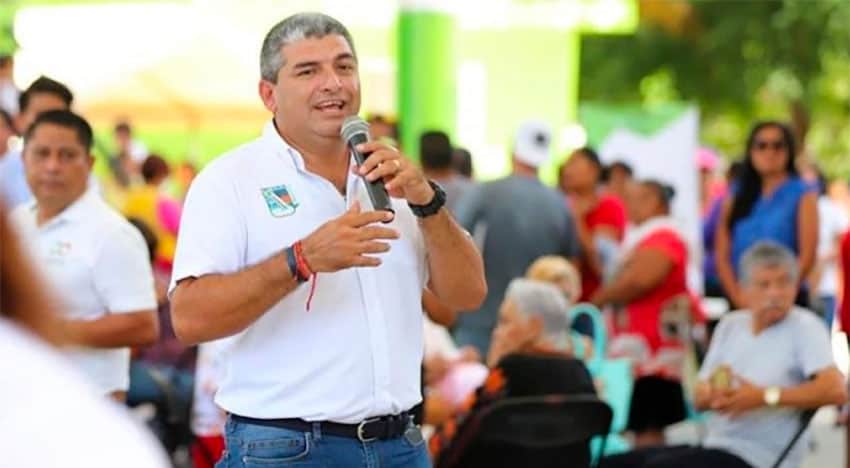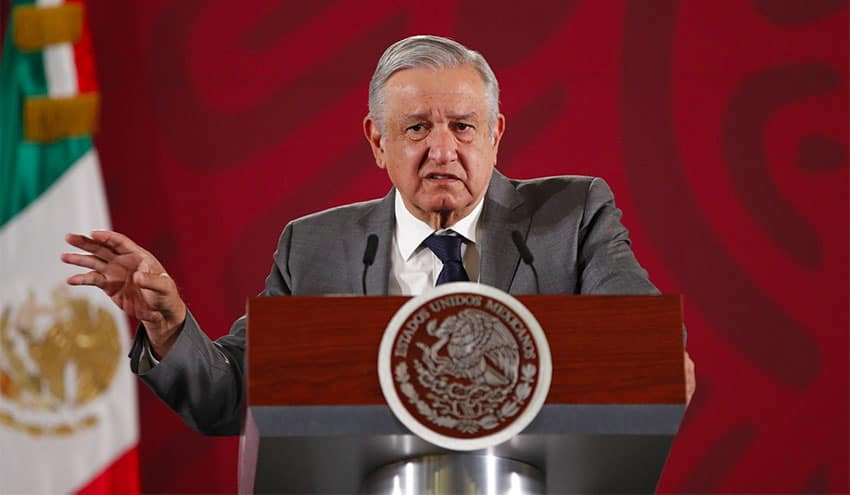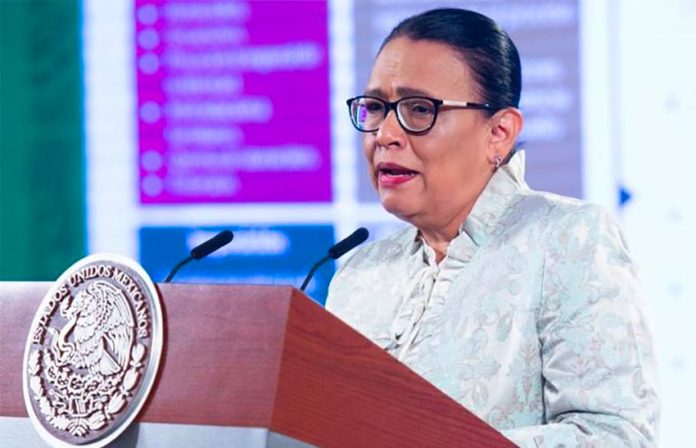The federal government has identified seven states with an elevated risk of interference by organized crime in the electoral process leading up to municipal, state and federal elections on June 6.
“In the states of Morelos, Guerrero, Michoacán, Oaxaca, Veracruz, Sinaloa and Jalisco we see more risk that candidates will be co-opted by [organized] crime,” Security Minister Rosa Icela Rodríguez said at the president’s news conference on Thursday.
She also said that more than half of the incidents of political violence in the pre-campaign period have occurred in seven states: Oaxaca, Guanajuato, Veracruz, Guerrero, Morelos, Baja California and Jalisco.
Rodríguez said that organized crime and white-collar criminals “have a varied repertoire of actions to influence these elections,” explaining that they include “strategies of complicity or violent pressure.” She added that President López Obrador has described criminals seeking to influence the elections as “the crime party.”
“They establish campaigns of fear to intimidate the political class and people in general,” the security minister said.

“They murder, threaten, co-opt, install [candidates] and fund [political campaigns]. Among their strategies of violence are homicide, kidnappings, intimidation of families, the burning of homes and extortion,” Rodríguez said.
“They also co-opt by approaching pre-candidates, colluding with other political actors of the parties or local governments and before the electoral process [begins] they offer financing, donations or to provide protection and labor for their campaigns. In some regions, [organized] crime is trying to designate municipal candidates. They take control of [parties’] finances, extort and ask for bribes and tithes from governments and their suppliers.”
The minister said that criminal influence is most prevalent at the municipal rather than state and federal level. More than 21,000 elected positions will be up for grabs at the June elections, the vast majority of which are municipal roles including mayor.
Rodríguez said that protection will be provided to candidates who request it and that security will be bolstered in parts of the country where there is an elevated risk of political violence.
Her description of the influence criminal groups have or are trying to have on political life comes just four days after López Obrador urged citizens to report candidates using public money or resources from organized crime to fund their political campaigns.
Violence has long plagued politics in Mexico, and countless mayors have been murdered in recent years. Former Jalisco governor Aristóteles Sandoval was murdered in December while one of Mexico’s most notorious political assassinations was that of presidential candidate Luis Donaldo Colosio in 1994.
According to the risk analysis firm Etellekt, there were 151 acts of political violence in the pre-campaign period between September 7, 2020 and February 16, including 46 murders. Ten of those slain were aspirants to elected positions.
Incidents of violence increased 4.1% in the recent pre-campaign period compared to the same period three years earlier during which there were 145 acts of political violence in the lead-up to the 2018 elections.
Etellekt director Rubén Salazar told the newspaper El Economista that there has been an atmosphere of uncertainty during the 2020-2021 pre-campaign period, explaining that there has been a lot of movement of people between political parties and that has created tension that is conducive to violence.
He said that candidates, including people already in elected positions, may be tempted to resort to violence (most likely by colluding with organized crime) to improve their political prospects if they believe they are destined to lose the election.
Salazar said that state-based prosecutor’s offices tasked with investigating political violence are politically biased and that situation fosters impunity, which only encourages violence.
“Work has [supposedly] been done for years so that the prosecutor’s offices become autonomous but it’s a ploy because governors choose the prosecutors – [prosecutor’s offices] are only autonomous on their letterhead. There are prosecutor’s offices that are focused on investigating acts of corruption due to alleged links between opposition politicians and drug trafficking … but [the investigations] are always about the opposition, … they don’t investigate within their own party,” he said.

Arturo Espinosa, general director of the political consultancy Estrategia Electoral, told El Economista that the aggressive and divisive discourse of politicians at all three levels of government encourages political violence.
(López Obrador, who dubs virtually anyone who doesn’t agree with him as an adversary, a conservative or member of the old “mafia of power,” is notorious for making remarks that do far more to divide the country than unite it.)
Espinosa said that political speech should promote tolerance rather than division, asserting that such discourse would help to avoid acts of violence against political actors.
“I believe that the [federal] government with its polarizing daily discourse, which rarely shows tolerance toward the opposition and those who think differently, has increased this division and violence that we see a lot and which is unnecessary,” he said.
Source: Milenio (sp), Reforma (sp) El Economista (sp)
